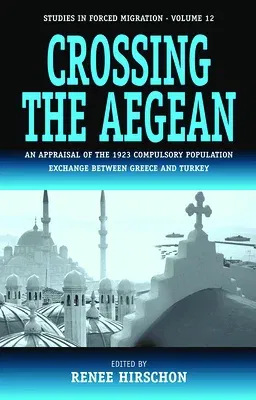"This volume is a long overdue endeavour to tackle the thorny and
delicate issue of the compulsory population exchange . . . The
argumentative force of the volume lies in the careful analysis of the
contradictory and ambiguous ramifications of the convention." -The Greek
Review of Social Research Following the defeat of the Greek Army in 1922
by nationalist Turkish forces, the 1923 Lausanne Convention specified
the first internationally ratified compulsory population exchange. It
proved to be a watershed in the eastern Mediterranean, having
far-reaching ramifications both for the new Turkish Republic, and for
Greece which hadto absorb over a million refugees. Known as the Asia
Minor Catastrophe by the Greeks, it marked the establishment of the
independent nation state for the Turks. The consequences of this event
have received surprisingly little attention despite the considerable
relevance for the contemporary situation in the Balkans. This volume
addresses the challenge of writing history from both sides of the Aegean
and provides, for the first time, a forum for multidisciplinary dialogue
across national boundaries. Renée Hirschon was educated at the
universities of Cape Town, Chicago and Oxford. Intensive fieldwork among
the Asia Minor refugees settled in Piraeus resulted in the monograph
"Heirs of the Greek Catastrophe". She has been Senior Lecturer at Oxford
Brookes University, and Professor of Social Anthropology at the
University of the Aegean. She is currently Research Associate of the
Refugee Studies Centre, Queen Elizabeth House, and Lecturer, St Peter's
College, University of Oxford.

